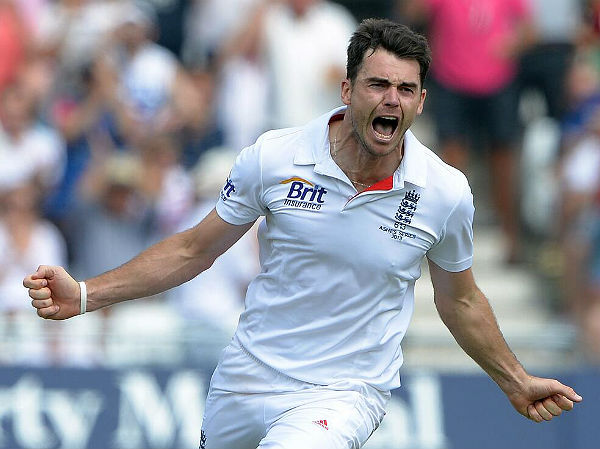It’s the hope that kills you.
At 9/231 chasing a record-breaking Trent Bridge score of 311 to win, Australians had almost resigned themselves to a first test loss. Enter the experienced Brad Haddin and the lion-hearted James Pattinson.
Together, they generated hope. They knocked off 10 runs, 20, 30. All the while building optimism, creating the belief that maybe this miraculous dream could come true.
For the second time in the test, the Australian tenth-wicket stand went past 50.
It couldn’t happen again, surely not.
People were beginning to question themselves. By lunch the partnership had reached 60, only 20 runs remained. But deep down we knew, the 40-minute luncheon interval was only prolonging the inevitable anguish and despair that would soon strike down Australian cricket yet again.
10 minutes after the break and sure enough, disaster.
James Anderson, currently the greatest seam bowler on earth, came back into the attack. He sent down another ball of perfect line and length, forcing Brad Haddin to play at one just outside the off stump.
Jimmy Anderson has been named as the Man of the Match at Trent Bridge http://t.co/UauS7jJIPw #Ashes pic.twitter.com/nFaxHQ6zHw
— BBC Sport (@BBCSport) July 14, 2013
The muffled sound of an edge was enough to shatter the belief that dreams can come true. But then, once again, hope. Following a half-hearted appeal from the English players, umpire Aleem Dar was unconvinced.
He gave it not out.
Still with two reviews remaining, Alastair Cook immediately sent the decision upstairs.
Not like this.
The controversial Decision Review System had already toiled with the hearts of Australian cricketing fans too much in this test.
From the bizarre inconsistency in the system that gives a batsman not out when an LBW is clipping the stumps, provided the umpire initially gives it not out, to Stuart Broad’s horror edge to first slip that Australia couldn’t review due to already wasting their referrals – you knew you exactly what was going to happen next.
Sure enough, hotspot showed a faint edge on Haddin’s bat. However, predictably, the vision was inconclusive. Nobody could tell if that spot was there from the bat hitting the batsman’s pads due to his body being in the way.
Somehow the third umpire, South African Marais Erasmus, thought there was enough to prove beyond reasonable doubt that Haddin had hit the ball. The decision was overturned.
Australia had fallen 14 runs short. England had won.
But there’s no time to wallow in self-pity. Australia must move on. Yes, we were unlucky. Yes, we could blame the DRS.
Yet, ultimately it was our own top-order failings that lost us this test match. At Lords we have to be better. The Ashes depend on it. We can’t remain hung up on the defeat at Trent Bridge going into the second test. England is too good a side to let us do that and get away with it.
While it might have been the hope that killed our dreams in the first test, we can also take hope from the five epic days in Nottingham. For the most part, we played good cricket. We weren’t at our best, particularly with the bat, but we can improve. England isn’t unbeatable.
It’s at moments like these in series like the Ashes where Darren Lehmann could prove the perfect man to be at the helm of Australian cricket. He’s an old-school Australian cricketer. He’s a winner.
The best way to react to poor decisions, poor luck and broken dreams is win the next test. Lehmann will be reiterating to his troops that they’re Australians – we do it best with our backs to the wall.
The only way to get back to the golden days of Australian cricket is to reintegrate a winning mentality into this side.
At the moment the performances may be steadily improving, but the results just aren’t there yet. Rebounding at Lords and making a statement in doing so will be the first real step in transforming the Australian cricket team back into what it once was.
Riley Beveridge is a second-year Bachelor of Sports Journalism student at La Trobe University. You can follow him on Twitter: @RileyBev







